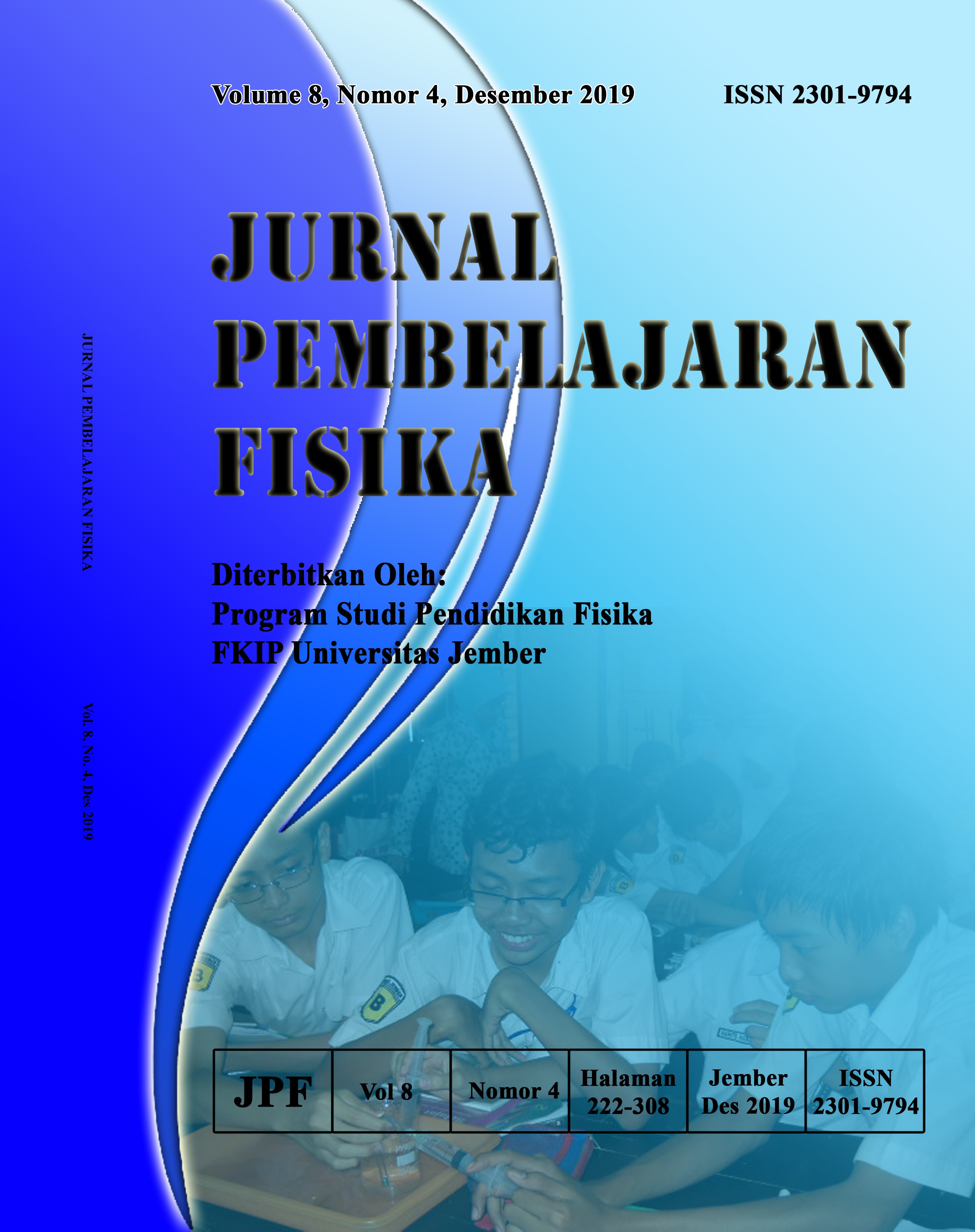ANALISIS KEMAMPUAN BERPIKIR KRITIS SISWA PADA PEMBELAJARAN KIMIA: Materi Reaksi Redoks dan Elektrokimia MENGGUNAKAN MODEL PROBLEM BASED LEARNING
DOI:
https://doi.org/10.19184/jpf.v8i4.16831Abstract
Abstract: This study aimed to analyze the learning activities of students in
the chemistry learning process by using the problem base learning (PBL)
learning model. This research was an experimental study using Control
Group Design on 12th grade science students at High School Tegaldlimo
Banyuwangi, East Java. As a control class was class 12 IPA-1 and as an
experimental class was class 12 IPA-2. Learning chemistry of redox and
electrochemical reaction materials in the experimental class used the
problem base learning model, while learning in the control class did not use
the problem base learning model. Aspects of critical thinking skills reviewed
include 3 aspects: (1) Elementary clarification (giving basic explanations),
which was about what known and what the core problem; (2) The basis for
the decision (determining the basis for decision making), namely the right
reasons as the basis before a step was taken; (3) Inference (drawing
conclusions), namely drawing correct conclusions must be based on reasons
that are reasonable or logical. Student learning activities during the study
were also observed to include: 1) involvement in discussion, 2) involvement
in carrying out practicum, 3) discipline in learning, 4) responsibility. The
results of the analysis using the t-Test statistical analysis with a 95%
confidence level proved that the students' ability to provide explanations,
decision making, and the ability to draw conclusions in the experimental
class students were significantly higher than those in the control class.
Keywords: Problem Based Learning Model, Critical Thinking Ability


-14(3)_minimalis_pages-to-jpg-0001_(2).jpg)
_(3)2.jpg)






